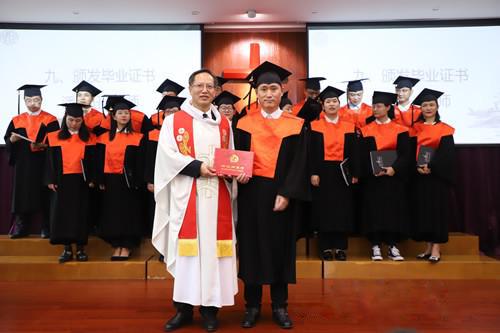In order to standardize the management of religious clergy in Zhejiang Province and protect their legitimate rights and interests, Zhejiang Ethnic and Religious Affairs Commission formulated "Implementation Measures on the Management of Religious Clergy in Zhejiang Province" (Measures) which came into effect on January 1.
The Measures have been enacted based on "Regulations on Religious Affairs", "Regulations on Religious Affairs of Zhejiang Province", and "China’s 2021 Measures on the Management of Religious Clergy", according to the State Administration for Religious Affairs.
The "Regulations on Religious Affairs" revised by the State Council of the People’s Republic of China in 2017 specially formulate Chapter 5, which stipulates the right for religious personnel to engage in professional religious activities, the right to social security, and the notice items for religious clergy to acquire, assume and leave the chief religious posts in religious activity sites. The "Regulations on Religious Affairs of Zhejiang Province" launched in 2019 regulate religious clergy’s residence registration and the hosting of religious activities in Articles 21 and 22. The Measures are made as a refinement and supplement of "China’s 2021 Measures on the Management of Religious Clergy".
The Measures contain 15 articles, covering the purpose of formulating the document, the responsibilities of religious groups, the filing of qualifications for religious clerical personnel, certificate management, flow management, information update, and the hosting of religious activities or preaching. It also stipulates an annual debriefing of the heads of religious groups, religious colleges, and religious activity venues, pre-appointment assessment of main faculty, annual evaluation, management of resignation, social security, training and protection of legitimate rights, and interests of religious clergy.
- Translated by Abigail Wu








